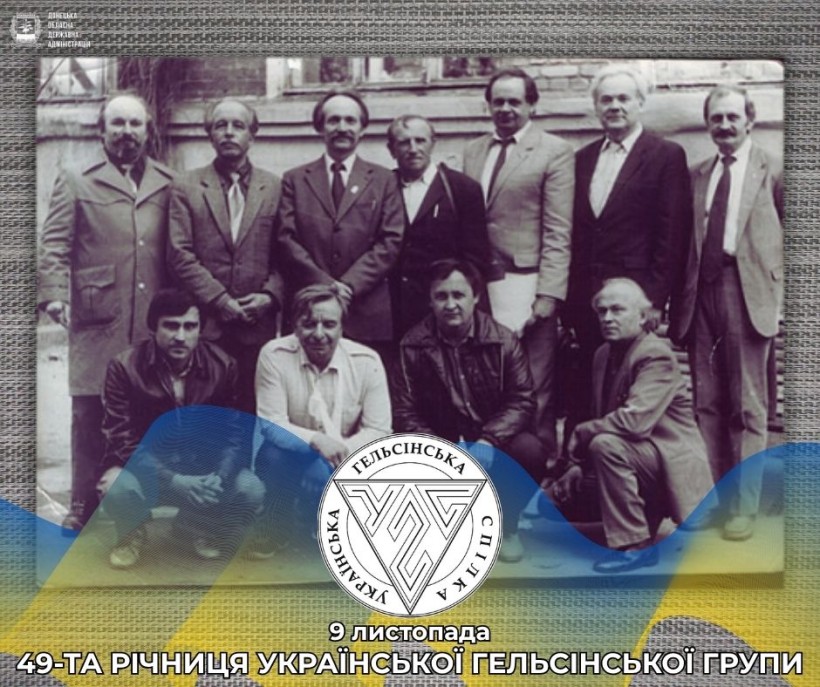
November 9, 2025 marks the 49th anniversary of the Ukrainian Public Group for the Promotion of the Implementation of the Helsinki Accords (Ukrainian Helsinki Group). It became the first legal human rights organization in the Ukrainian SSR, which played one of the key roles in the national liberation struggle of the Ukrainian people and initiated a non-violent, legal, and legitimate path to Ukraine's independence.
On August 1, 1975, the governments of 35 countries in Europe and North America, including the USSR, signed the Helsinki Accords, which were intended to consolidate new relations in Europe and ensure the implementation of high principles of democracy and human rights in each of them. It was assumed that the discovery of cases of persecution of people for their beliefs would give rise to legally justified claims by other parties and would not be interpreted as interference in the internal affairs of the country.
Realizing that this was practically impossible under Soviet Ukraine, writer and philosopher Mykola Rudenko, chemist Oksana Meshko, science fiction writer Oles Berdnyk, and lawyer Levko Lukyanenko (Chernihiv) took the initiative to create a legal human rights organization to promote the implementation of the Helsinki Accords. The founding members also included engineer Myroslav Marynovych (Kyiv region), historian Mykola Matusevych, teacher Oleksa Tykhyi (Donetsk region), and lawyer Ivan Kandyba (Pustomyty, Lviv region).
On November 9, 1976, human rights activists signed the Declaration of the Ukrainian Public Group for the Implementation of the Helsinki Accords and Memorandum No. 1. The Declaration proclaimed the creation of a human rights organization and announced its goals and objectives, the main one being to inform the governments of the countries participating in the Helsinki Conference and the world community about human rights violations in Ukraine and the rights of Ukrainians living in other republics of the Soviet Union.
At a time when the global colonial system was collapsing, the Ukrainian Helsinki Group reminded the world of the existence of an oppressed Ukraine and raised the issue of its recognition by the international community.
In response to the activities of the opposition movement, the authorities resorted to mass repression. Just one year after the organization was founded, in 1977, five members of the organization were arrested and convicted: Mykola Rudenko, Oleksiy Tykhy, Levko Lukyanenko, Myroslav Marynovych, and Mykola Matusevych.
All of them were convicted under Article 62 of the Criminal Code of the Ukrainian SSR – "anti-Soviet agitation and propaganda," which provided for punishment in the form of imprisonment for a term of 7 to 10 years and 5 years of exile. All those convicted received the maximum punishment provided for by the article.
In March 1981, the entire Ukrainian public group promoting the implementation of the Helsinki Accords found themselves in camps or in exile.
The Ukrainian Helsinki Group consisted of about 40 people, 24 of whom were convicted. In total, they served more than 550 years in prisons, camps, closed psychiatric hospitals, and exile.
The group paid with five lives: Mykhailo Melnyk committed suicide on the eve of his inevitable arrest on March 9, 1979. Four prisoners of the special regime camp in the village of Kuchino in the Perm region died: Oleksa Tykhyi, Yurii Lytvyn, and Valerii Marchenko in 1984. Vasyl Stus died in 1985.
Despite intense pressure and mass arrests, the group not only did not disband, but also continued to recruit new members, even from camps and exile, including two foreigners in 1982 and six more at the end of 1987. The strength and enormous moral advantage of Ukrainian human rights defenders over the totalitarian regime lay in the fact that they did not go underground, but signed documents with their names, openly demonstrated their position and demands, appealing to Soviet law and international legal documents signed by the USSR.
During the period of glasnost and perestroika, activists of the Helsinki Group, now free, resumed their human rights activities, which quickly took on a political character. On July 7, 1988, the Group transformed into the Ukrainian Helsinki Union, which gave impetus to the creation of the first political party in Ukraine.
The Ukrainian Public Group for the Promotion of the Implementation of the Helsinki Accords occupies a prominent place in the history of the Ukrainian liberation and human rights movement. Its activities, together with other factors, led Ukraine to independence and contributed to the development of the rule of law and civil society, in line with the freedom-loving spirit of the Ukrainian people and the letter of international legal acts.